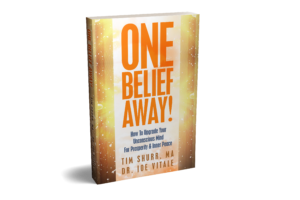High-achievers focus on a single priority and move everything else to the side, including checking emails.
They train themselves to solve one problem with passion instead of multitasking or trying to do it all. Think laser beam, not a floodlight.
My son, Maximus, and I started a book club a while back.
We are reading Essentialism by Greg McKeown.
In it, Greg reinforces the importance of “Doing Less Better.”
Greg says, “The word priority came into the English language in the 1400s. It was singular. It meant the very first or prior thing. It stayed singular for the next five hundred years. Only in the 1900s did we pluralize the term and start talking about priorities.”
Nowadays, teams sit around a table and talk about their Top 10 priorities, and that’s where the fragmentation of momentum starts.
You cannot run in ten directions, or even two, simultaneously. Most do so because they don’t know what approach will produce the most satisfactory results.
So we “throw it all at the wall to see what sticks,” but that wastes a lot of time, energy, and resources.
Then the limiting belief surfaces. “Well, it has to get done. I can’t just not do it!”
Imagine drilling for oil in your backyard. You begin by digging a one-foot hole and find nothing. So you move to another spot in the yard and dig a second one-foot hole, but no oil.
Thus, you move to another spot in the yard and repeat the same action. By the end of the day, you’re exhausted with a yard full of one-foot holes and no oil to show for it.
That’s when people start to think, “What’s wrong with me? Other people are finding oil, so why can’t I? After all, I’m out here working as hard as everyone else.”
According to the theory of Essentialism, the solution is to carefully do your research on the best possible spot to dig for oil in your backyard.
Then dig that one hole until you strike oil. The temptation to move to another spot after going down five or ten feet may be great, but you must develop the discipline of remaining singularly focused.
I ignored this advice for most of my career because I didn’t know what path to take, and I didn’t want to miss any opportunities. As a result, I became a jack of all trades, which fragmented my business.
You start each day with 100%. If you divide your energy equally between your family and your job, that’s 50% for each. On the other hand, if you put 100% into your career, there’s nothing left for your family. If you concentrate on your job, family, and health, that 100 gets divided by 3.
Let’s say your job gets 50% of your energy. Are you able to focus on one main task, objective, or priority? Or do you get pulled in ten different directions? Are you distracted by other people’s agendas or unexpected events? Do you feel as though you’ve made progress with your goals at the end of each day?
For example, in a given week, I would:
- Help people lose weight or stop smoking using my OBA Hypnosis Method
- Do a podcast interview
- Write chapters of a new book
- Do a keynote on Leadership
- Provide a workshop for a corporate client
- Post live videos and articles on a wide variety of topics
- Build a new sales funnel for a new online course
- Write newsletters
- Create proposals for keynotes and consulting gigs
- Provide interviews for TV shows and podcasts
- And dig a dozen other one-foot holes…
I was all over the place, and so was my business.
Thus, when someone tried to refer me, they’d often do so by saying, “Tim is a great guy. He does all kinds of stuff like hypnosis.” That is a terrible description for a referral because of the vagueness.
How would someone describe what you do?
Are you pursuing one goal, outcome, or dream with singular focus and passion?
Or are you learning to work the stock market while getting your realtor license and yoga teacher certification, in addition to taking an SEO course and becoming a business coach?
Any one of those directions is lovely, but not all of them simultaneously if you wish to excel at your craft.
Think about what you are good at AND what you enjoy doing most, without immediately allowing fears and objections to interfere.
Les Brown once told me that our professional goal should be to love what you do so much that you’d do it for free. But to do it so well that people gladly pay you handsomely for it.
🙂 Tim Shurr



This is So RIght On with Clarity & Wisdom!
Tim, Enjoyed your blog ! several years ago you helped me prepare for Th Powerlifting World Competition . Would like to connect with you if interested.